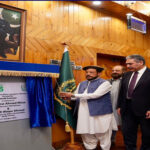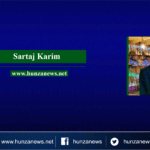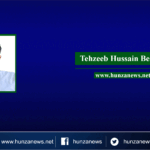Despite being a multimillionaire, an enigmatic businessman, philanthropist, sport enthusiast and spiritual leader to almost 15 million Ismaili Muslims worldwide, not much is known about him.
A man of few words, he gracefully bridges the gaps between the spiritual and the material; East and West; Muslim and Christian – which is no easy task for the best of us.
As he celebrates his milestone birthday, we bring you some interesting facts about the man, his impressive work and the epic year he’s about to embark on.
Who is the Aga Khan?
The Aga Khan’s full title is actually His Highness Prince Karim Aga Khan IV.
He is the 49th and current spiritual leader of around 15 million Ismaili Muslims, who are scattered across 25 countries.
While most Ismailis live in African and Asian countries – there are sizable communities in Britain as well as the US and Canada.
Although he has a British passport, the Aga Khan lives in France and is among the top 15 of the world’s wealthiest royals- according to Forbes magazine, he’s worth an incredible £800 million.
He assumed the role of the 49th Imam (or spiritual leader) of the Shia Imami Ismailis on 11 July 1957 at the age of 20 – succeeding his grandfather, Sir Sultan Mahomed Shah.
When this happened, he was in his junior year at Harvard and it was the first time in the family’s 1,300-year history that a generation had been skipped over.
Diamond Jubilee Year 2017
In 2017, the Aga Khan will have completed 60 years as leader of the Ismaili community.
Worldwide events and celebration will mark the beginning of his Diamond Jubilee in July 2017, with the celebrations continuing for the following 12 months.
His year will include an incredible global tour meeting his followers, and he will personally attend the launch of a number of Diamond Jubilee initiatives – namely new projects that will continue his legacy for generations to come.
The Diamond Jubilee year will effectively be a celebration of the Aga Khan’s vision and tireless work, which has steered the Ismaili community through 60 years of sweeping changes in the global landscape – at a scale that is unprecedented in history and during a period which has seen massive social, political and economic challenges.
The Aga Khan’s business ventures
Prince Karim is a passionate horse breeder and owns an impressive racing and breeding operation.
These include stud farms in Ireland and France, and a stake in Goffs – one of Britain’s largest horse auction houses.
In fact, he bred Shergar – once the most famous and most valuable racehorse in the world.
He also and owns and operates the largest horse racing and breeding operation in France – Arqana – which is believed to be one of the main sources of his income.
But it’s not all business
The staggeringly large Aga Khan Development Network (AKDN) works across 30 countries around the world, and employs 80,000 people.
It was established to improve the quality of life not just for Ismailis, but also for the wider communities in which they lived.
For over 60 years, the AKDN has been building institutions and delivering essential services by creating schools and hospitals, newspapers and electricity generation plants, and social programmes of all kinds.
The collective agencies work towards multiple causes – these include the elimination of global poverty and the advancement of the status of women, among others.
And that’s not all. Worldwide, the Aga Khan’s name can be seen on a number of hospitals, schools and universities – each facility employing, assisting, treating and educating without discrimination.
The Aga Khan Award for Architecture
This award was established in 1977 and is presented once every three years.
It was established to ‘identify and encourage building concepts that successfully addressed the needs and aspirations of communities in which Muslims have a significant presence.’
To be considered for the award, projects must exhibit not only architectural excellence, but also the ability to improve users overall quality of life.
In 2016, 19 projected were shortlisted – of which five winners receive a $1 million dollar prize.
One of this year’s winners was the ‘Superkilen’ – a kilometre-long urban park located in Nørrebro, a diverse and socially challenged neighbourhood of Copenhagen, which was designed and built in collaboration with the local, predominanely Muslim, community.
metro.co.uk


























